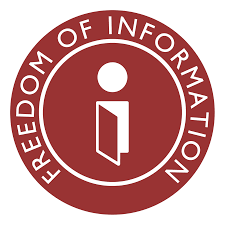Ethical implications are attached to every piece of journalism. These include:
- the stories that are chosen and equally those that are not;
- who is interviewed;
- the questions put to the interviewee;
- the editing of those interviews;
- what time of day the story is released;
- how many bulletins are used;
- the length of clips used and;
- how the cues and headlines are written and read.
The International Journalist Code's first clause states:
'Respect for the truth and for the right of the public to the truth is the first duty of the journalist.'
This also resonates in various other codes of conduct, namely:
- The International Federation of Journalism
- The BBC
- The National Union of Journalists
- Committee of Concerned Journalists
- The Radio & Television News Directors Association
- Arabic broadcaster Al-Jazeera
The truth is not always the easiest thing to find and is highly time consuming. Although, there are other principles present; accuracy, fairness, public accountability, impartiality and objectivity, truth can be said to underpin them all.
'We strive to be accurate and establish the truth of what has hapened. Accuracy is more important than speed and it is often more than a question of getting the facts right. All relevant facts and information should be weighed to get at the truth. Our output will be well sourced, based on sound evidence, thoroughly tested and presented in clear; precise language. We will be honest and open about what we don't know and avoid unfounded speculation.'
The former director of the BBC News, Richard Sambrook, writing in the British Journalism Review in 2004 said how:
'In journalism, 'mainly right' is like being half pregnant - it's an unsustainable position.'
Impartiality and diversity
BBC Editorial Guidelines state how:
'We strive to be fair and open minded and reflect all significant strands of opinion by exploring the range and conflict of views. We will be objective and even handed in our approach to be a subject. We will provide professional judgements where appropriate, but we will never promote a particular view on controversial matters of public policy or political or industrial controversy.'
Here is a transcript from a piece on Radio 4's 'From Our Own Correspondent' on the funeral of the Palestinian leader, Yasser Arafat in 2004:
'The world watches the unfolding drama as the man who has become the symbol for Palestinian nationalism seems to hover between life and death...To be honest, the coverage of Yasser Arafat's illness and departure from Palestine was a real grind. I churned out one report after the other; without any sense of drama. Foreign journalists seemed much more excited about Mr Arafat's fate than anyone in Ramallah...Where were the people, I wondered, the mass demonstrations of solidarity, the frantic expressions of concern?...I started to cry...without warning. In quieter moments since I have asked myself, why the sudden surge of emotion?'
This led to hundreds of complaints from listeners. The BBC Governor's Programme Complaints Committee rejected the idea that this was a 'tearful eulogy' and a 'flagrant violation' of Editorial Guidelines. Also, it was said that the report was balanced with Mr Arafat's 'obvious failings'. The governor's decided that that the reference to crying did breach the guidelines on impartiality. The BBC's Director of News apologised for what she described as an 'editorial misjudgement' and thus that the reporter 'unintentionally gave the impression of over-identifying with Yasser Arafat and his cause.'
Common diversity issues
- ethnicity
- disability, whether physical or mental
- faith and religion
- gender and sexual orientation
- age
The comments after each of these come from Kevin Marsh, the former Editor of BBC Radio 4's Today programme and now the Editor-in-Chief of the BBC's College of Journalism.
1. You are covering a dramatic accident and the only eyewitness is a homeless man who seems somewhat intoxicated. He provides compellling information that appears to corroborate the scene.
Do you use it?
No. Under no circumstances. A single witness corroborates nothing. A single drunk witness is potentially misleading. If you were honest - if a little blunt - about this man to the audience you would say in a script 'The only witness to the incident was this drunk tramp.' Would they conclude he was a powerful, key witness?
2. While gathering natural sound at a high school football match, your sports reporter captures the popular coach making derogatory sexual references while motivating his players. Do you run a story?
I wouldn't run the story just with that information. The tape has the status very similar to that of a recording made for note-taking purposes. That's to say, it was legitimate to make it and there is not a problem in discovering that there is a potential story in it. We would, however, have to begin the story from scratch, though with very intial evidence. We would make every effort to gather evidence that he had made inappropriate comments, spelling out what they were. Where the story went next would depend on his reaction and any other corroboration we could gather. It's possible - though not without heavy - duty Editorial Policy intervention - that it gets to the point where we run the original tape, but it would have to be after considerable efforts on our part to get the story another way.
3. A major celebrity is intown campaigning hard for a parliamentary candidate and wants to give media interviews. Do you schedule one?
It depends. There is an intrinsic reason why not. You'd have to look at what else you're planning/have done in that consitiuency. Why is the celeb campaigning? Who else is campaigning? There are plenty of circumstances where this is fine, but a few where you'd risk unbalancing your coverage and you'd have to be sure you weren't doing that. At the very least this would mean usuallyequally lengthy and impactful interviews with the other candidates or cheerleaders for them not legally but out of fairness.









